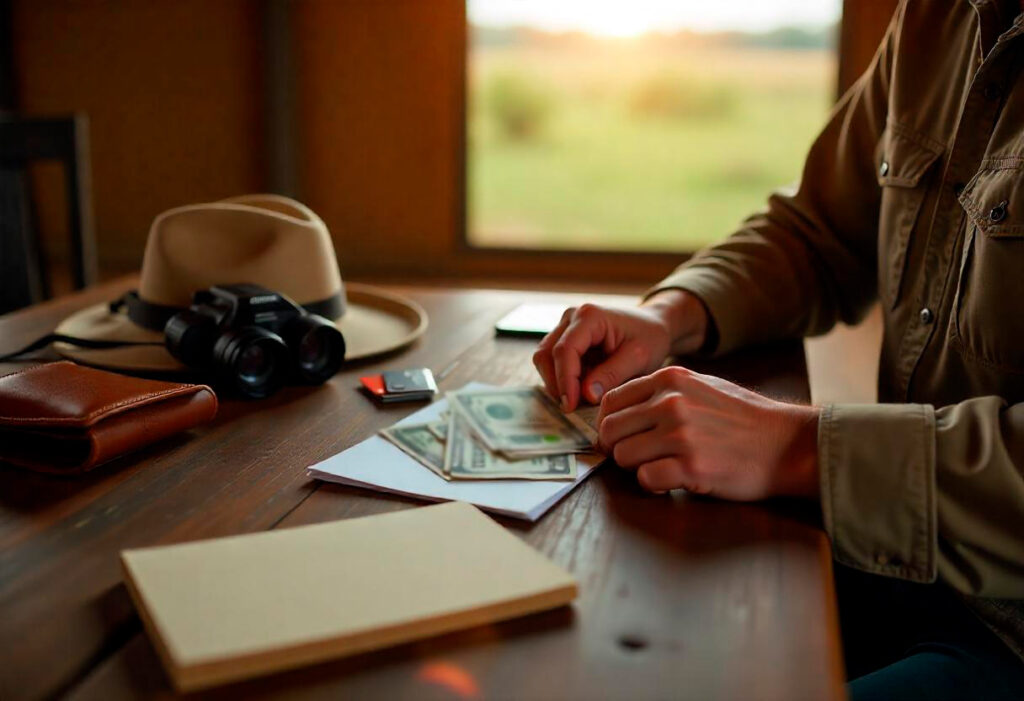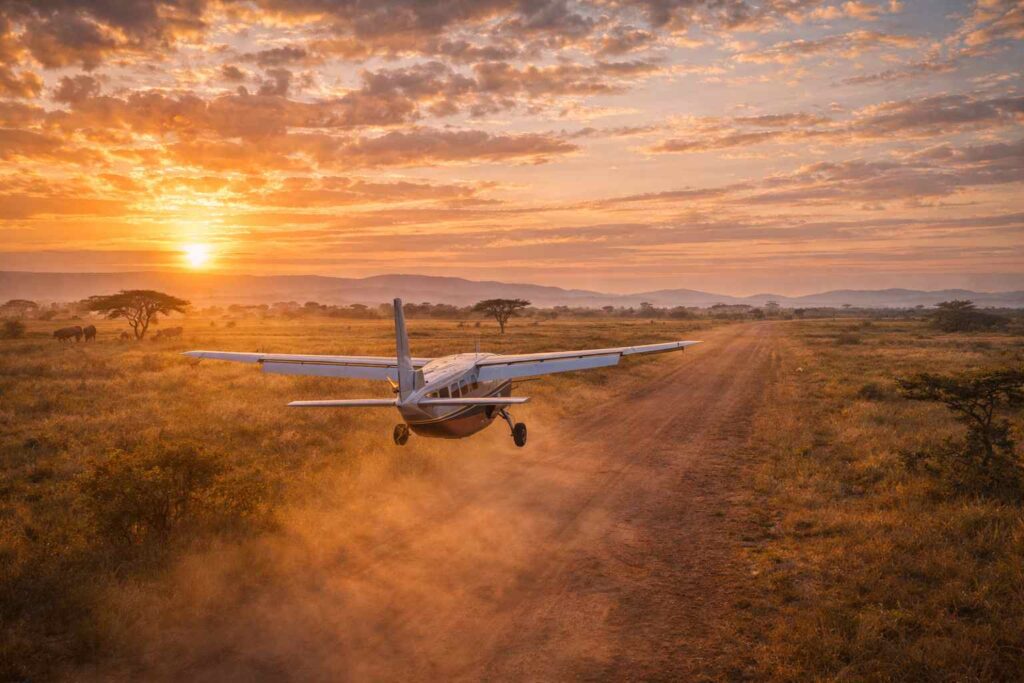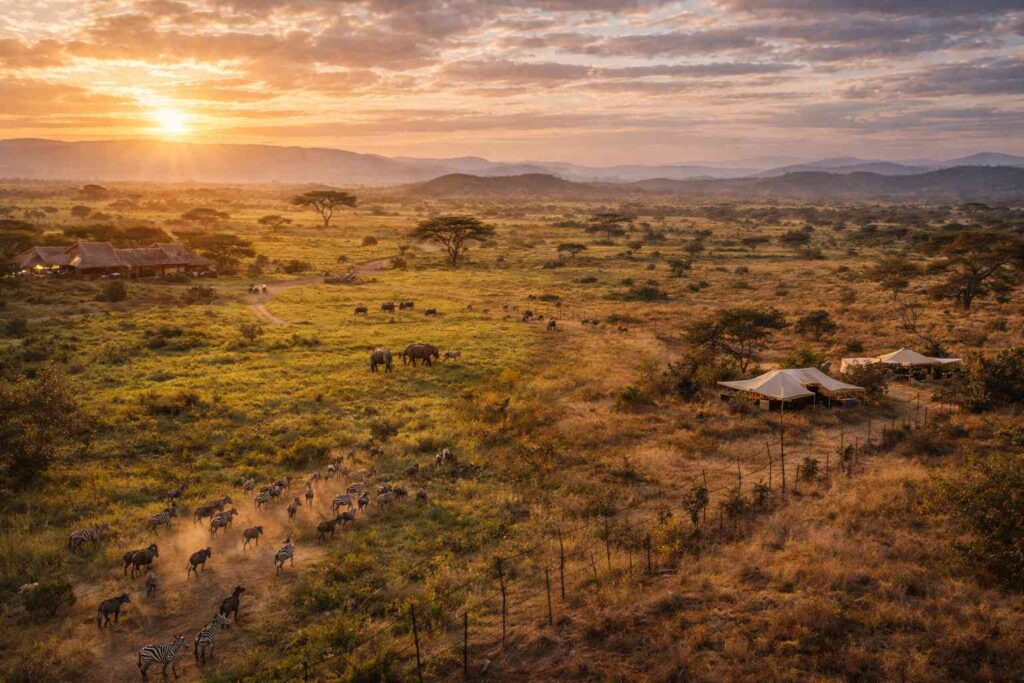Planning your African safari involves more than just packing and picking lodges — handling money is just as essential. Should you bring cash? Will your credit card work in remote camps? How much should you tip your guide or tracker?
This practical guide covers everything from currencies and tipping customs to card acceptance and budgeting, helping you feel prepared and confident in the wild.
What currency should you bring on safari?
In most safari destinations across Africa, US dollars are widely accepted, especially for tips and purchases at lodges. However, it’s still a good idea to carry some local currency (like South African rand, Tanzanian shillings, or Kenyan shillings) for use at airports, local markets, or en-route stops.
Quick tips:
- Bring new, clean, and undamaged US dollar notes (post-2006 issue)
- Avoid large denominations unless you’re making significant purchases
- Use local currency for small tips or market shopping
Using credit cards in safari lodges
Many mid-range to luxury lodges accept Visa and Mastercard, especially in countries like South Africa, Kenya, Tanzania, and Botswana. However, there are exceptions — and connectivity issues in remote areas can cause temporary payment failures.
What to expect:
- Luxury camps and all-inclusive lodges usually accept cards
- Remote mobile camps and smaller properties may be cash-only
- ATMs are rarely available once you’re in the bush
Pro tip: Always confirm payment methods with your safari operator before travel.
How much cash should you bring on safari?
While most major costs (lodging, transport, meals) are prepaid, you’ll still need cash for tips, souvenirs, optional activities, and emergency expenses.
Suggested cash breakdown per person (USD):
| Purpose | Daily Estimate |
|---|---|
| Staff and guide tips | $10–$25 |
| Souvenirs / local crafts | $20–$50 |
| Extra drinks or snacks | $10 |
| Emergency cash | $100–$200 total |
Traveling in a group or family? Multiply the tipping budget by the number of travelers — and don’t forget your driver or transfer staff.
Safari tipping guide: who to tip and how much
Tipping is customary on safari but not mandatory. Still, it’s a major part of the income for many staff — especially guides and trackers. Amounts may vary slightly by country, but here are general guidelines:
Safari lodge tipping (per person, per day):
- Private guide or ranger: $10–$20
- Tracker (if separate): $5–$10
- Camp/lodge staff (shared tip box): $10
- Transfer driver or porter: $2–$5
Some lodges provide tipping envelopes or group boxes. Others may include gratuities in the rate — always ask if unsure.
Tipping by country: quick guide
South Africa
- Most lodges accept cards. Tip in rand or USD.
- Etiquette is more flexible; mid-range camps may have lower expectations.
Kenya
- USD preferred. Tip guides and camp staff separately.
- Nairobi hotels may expect tips for bellboys and restaurant service too.
Tanzania
- Tips are a key income source. Bring plenty of small-dollar bills.
- Guides and trackers are usually tipped separately.
Botswana
- High-end camps may include tips, but not always.
- Use shared tip boxes unless otherwise instructed.
Namibia
- Local currency preferred; tipping amounts slightly lower.
- Many self-drive safaris, so tipping may be less frequent.
Final tips for handling money on safari
- Bring a mix of cash and cards — don’t rely on just one
- Keep small denominations for tips and purchases
- Use a secure travel wallet and split your money between bags
- Exchange currency before heading into remote areas
By planning ahead, you’ll avoid awkward situations and ensure the people who make your trip special feel appreciated.
FAQs: handling money on safari
Yes, even on all-inclusive safaris, tipping is still expected for guides, trackers, and lodge staff. These are not usually included in the package price unless specifically stated.
Mobile payments are uncommon in safari camps. Some urban areas in Kenya may accept M-Pesa, but in remote areas, cash or cards are the norm.
ATMs are rarely available in safari regions. If you’re in a high-end lodge, they may be able to add incidentals or tips to your card bill, but it’s best not to rely on this.
US dollars are widely accepted and often preferred. Just make sure bills are new, clean, and undamaged. For small transactions or local shops, local currency is better.
Not always. Connectivity issues can make card machines unreliable in the bush. Always carry backup cash in case payment by card fails.
Some luxury lodges include service charges in their rates, but this is not the norm. Check your booking details or ask the operator to be sure.
Most lodges provide a communal tip box where you can leave an envelope at the end of your stay. You can also tip your guide or tracker directly.
Roughly $200–$300 per person, depending on how many staff are involved and how many camps you visit.
Usually not. Currency exchange should be done at the airport, bank, or official exchange office before heading into the bush.
Yes. Airport transfer drivers, porters, and hotel staff (outside safari camps) often expect small tips ($1–$5 depending on service).






